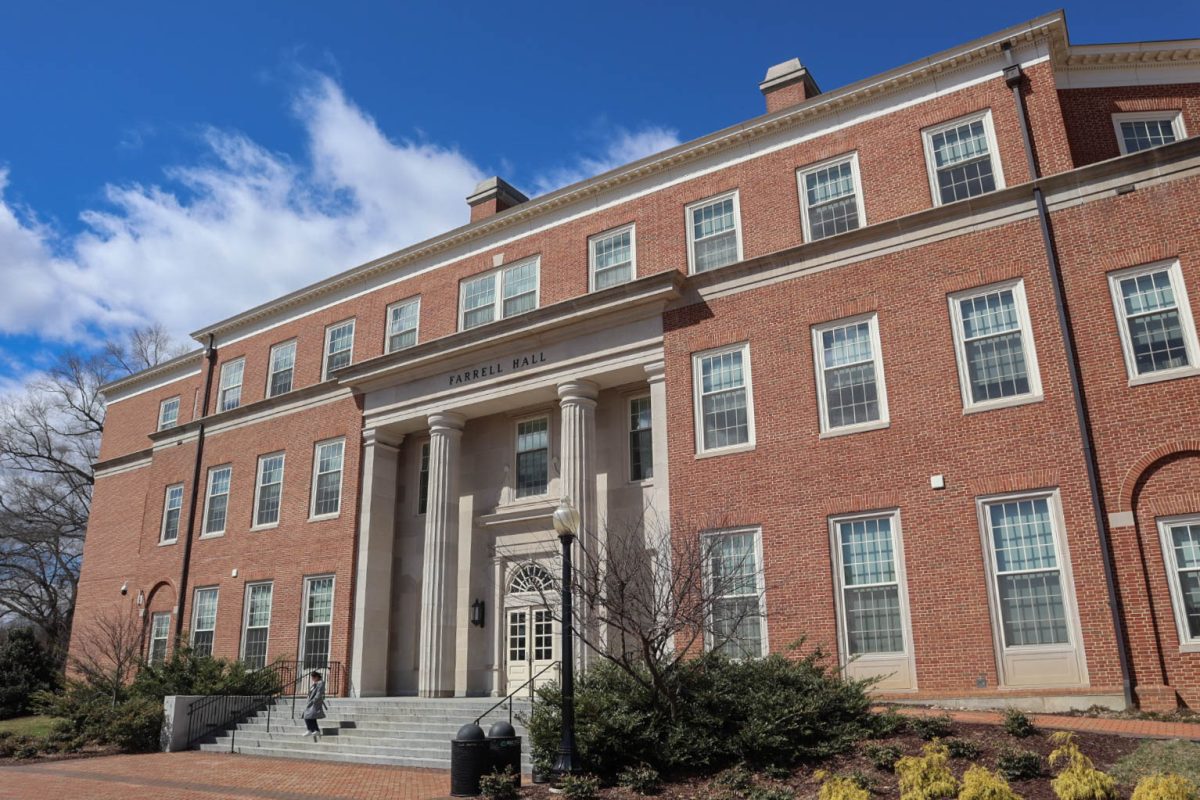In the spirited and necessary debate surrounding the Charles Koch Foundation (CKF) donation to the Eudaimonia Institute, there have been many perspectives brought to light.
I personally find this to be a healthy exchange of ideas that is of benefit to Wake, both in the interest to preserve the academic integrity of the school, and to ensure institutions of education, which are historically left-leaning in nature, continue to strive to offer students a diverse range of viewpoints. For if Wake fails to be inclusive in ideological scope, then I fear it fails its students in its mission to educate the whole person.
If George Soros, one of the more prominent left-leaning donors, would theoretically contact the Eudaimonia Institute tomorrow to provide funding, then I hope the faculty senate would analyze the donation with as much scrutiny as they have with the Koch Foundation. An institution as acclaimed as Wake Forest should entertain scenarios like such, as I think it’s only fair given how much pride Wake takes in its academic integrity and freedom, of which there is no single correct ideology or viewpoint.
Out of the many valid points provided, I believe the unique nature and reputation of the Koch foundation has been rather underemphasized. The Charles Koch Foundation shouldn’t be characterized as just another wealthy donor. In comparison to the Koch brothers, George Soros’ donations go mostly to foreign universities, and although he still donates substantial sums to U.S. colleges and universities, they are usually for international policy opportunities and rarely have specific limitations attached to funding. Robert McNair, Sheldon Adelson and his wife, Miriam are all significant Republican donors who choose to donate their money to medical research – a divestment from their political leanings. The Koch’s distinguish themselves from their uber-wealthy counterparts by pursuing a more specialized political agenda when they donate to higher education.
In fairness, the Koch brothers also support ventures separate from their political leanings, including the performing arts, incarceration awareness, public television, and the Smithsonian, among others. The industrialists also haven’t donated the most to higher education in recent years, as Gordon Moore donated 100 million dollars to California Tech in 2015. The former Intel CEO provided the large sum and left the spending to the discretion of the school. What separates the Koch brothers and the CKF is their willingness to spend considerable amounts of money to fund colleges and universities for specific pursuits. Also rare, the brothers fund anti-science groups.
The Koch family is hampered by a suspect history of funding groups that conflict with the overwhelming scientific community’s consensus on climate change. Climate change is undoubtedly real and human caused, yet Koch money has been spent in large sums to support think tanks, most notably the Heartland Institute, which disseminates information to refute the consensus of the scientific community. The relationship between the scientific community and the billionaires that own Koch Industries Inc., which includes Koch Pipelines, Koch AG and Energy Solutions, and Flint Hills Resources – all of which are heavily tied to fossil fuel usage – is strained, to put it charitably.
The CKF list of donations to higher education rose to 216 colleges and Universities in 2014, with financial relationships that vary from relatively harmless to worrisome. A few examples of the latter can be found in the Koch Foundation’s ties to Florida State University, the College of Charleston, and George Mason University, which have all faced criticism to their connection to the foundation. In 2007, the Koch Foundation initially sought partial control over the hiring of Florida State’s economics faculty, retention of the economic head faculty chair for 3 years, and a mandate for economics educators to align with Charles Koch’s libertarian views to receive the CKF’s funding, per an investigation by the Center for Public Integrity in 2014. This was ultimately rejected by Florida State in 2008, forcing a compromise. The University further refined the agreement in 2013 after fierce criticism from faculty and students.
The College of Charleston was required to provide the Koch Foundation with permanent email addresses for students who enrolled in courses backed by Koch funding, per an investigation by the Center for Public Integrity in 2015. George Mason University is well known for its ties to the Koch foundation, receiving 16.8 million dollars from the foundation in 2014, per Time Magazine. Charles Koch is on the board of directors for GMU’s Mercatus Center, in addition to having Koch network employees both currently and formerly holding positions for the center.
These examples help illustrate the controversy the CKF has garnered in the realm of academia, and while the results from the funding may have been completely different and harmless for Wake’s case, one can see why such a large group of faculty would oppose it. This isn’t a conventional donor group.
To the concern of Wake Forest students and faculty, I would ask: are the couple million dollars from the Charles Koch Foundation worth would risking the value of the degree that Wake issues, or the academic integrity of a top 30 nationally ranked academic institution? Academic freedom is critical, but it shouldn’t be used to justify funding from the CKF. Wake needs to keep pursuing donations from all types of donors, just not from this unique family.

















tdaly29 • Apr 23, 2017 at 2:49 pm
Years ago the wealthy, including Rockefellers,
Vanderbilts, Carnegies, Mellons, and others built colleges and
universities. Unfortunately, in the years
since I have graduated, the aim of some wealth families has changed.
The Charles Koch Foundation funds “think tanks” like the Cato insitute,
ALEC to influence local governments, and the Federalist Society to “recommend” Supreme Court justices to conservative presidents. Now they are turning to higher education. When the Koch Foundation and its friends give to almost 300 universities they have a particular aim, to propagate their
beliefs, not rigorous pursuit of the truth.